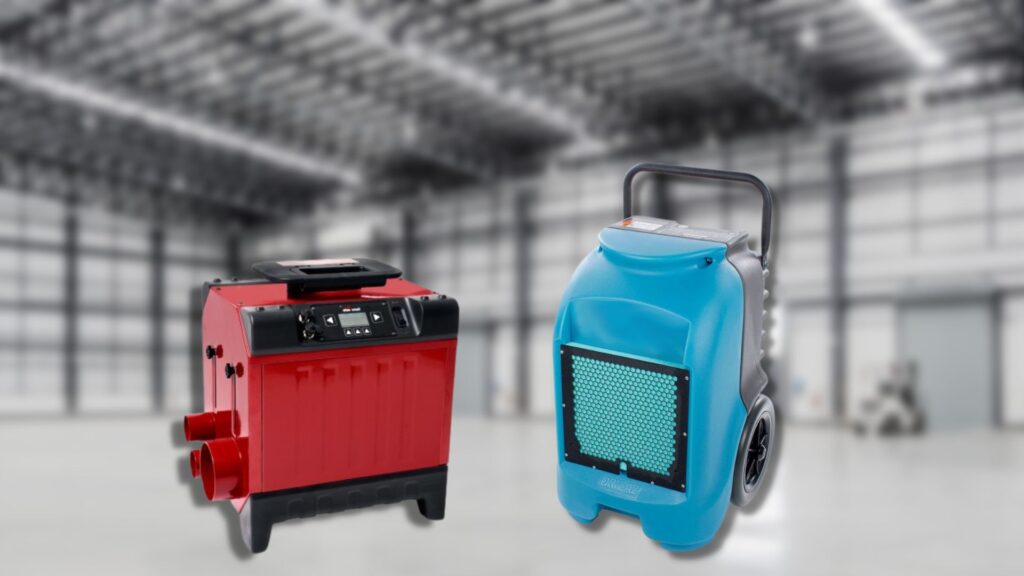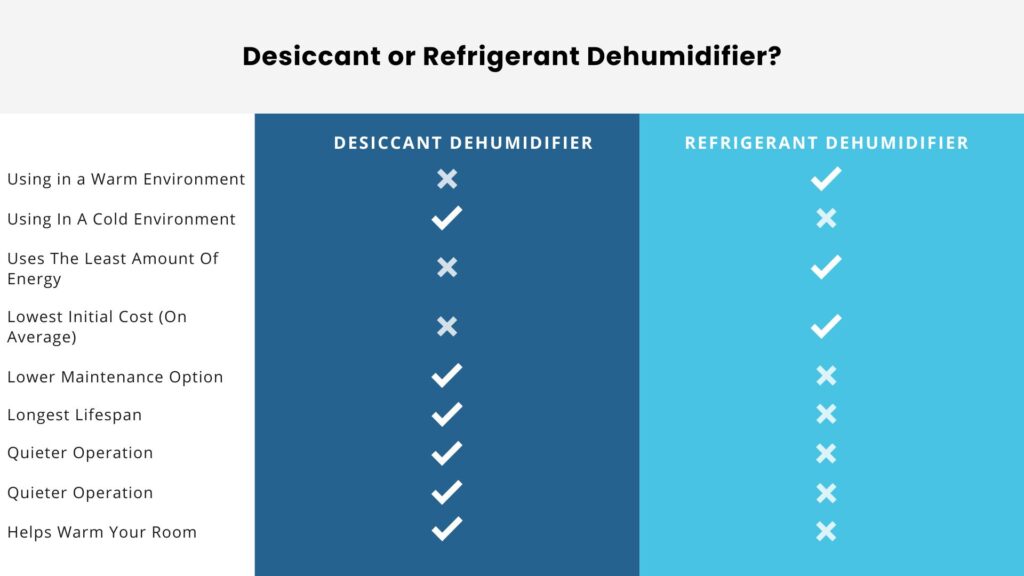
When your home or business suffers a flood or extensive water damage, you need a professional company to help remediate the problems and restore your premises to their original state.
At Vinci Response, we take great pride in our construction drying services.
Our expert teams have considerable experience dealing with water damage and use only the best state-of-the-art equipment.
One piece of equipment that they frequently use is commercial dehumidifiers. There are two specific types: ‘Desiccant’ and ‘Refrigerant’ (also known as Compressors).
In this blog, we will take a look at the different types and explain why our teams will choose one over the other, depending on the job at hand.
Desiccant Dehumidifiers
How Do Desiccant Dehumidifiers Work?
Desiccant dehumidifiers use an adsorbent material that sucks in water from the air through a rotor.
The desiccant material is usually a porous, granular silica gel. Moisture is taken from the air and then drips into a water condenser below. Once water is removed from the air, dry air can be blown back into the building.
Because they don’t need the temperature in the room to be warmer than they are, they can be used in conservatories, garages, or sheds.
Benefits of Desiccant Dehumidifiers
They Work In Colder Climates
As mentioned above, desiccant models have a consistent performance no matter the temperature of the room they’re used in. This makes them a versatile option for various commercial and domestic premises.
They Help Warm Your Space
Whether using a desiccant or refrigerator humidifier, both types expel hotter air than they draw in.
Because of their mechanics, however, desiccant models release slightly warmer air with around a 3-to-5-degree increase.
They Are Low Maintenance
Because desiccant dehumidifiers are refrigerant-free, they are easier to maintain than compressor options.
They Typically Have A Longer Lifespan
Desiccant humidifiers have fewer components (they don’t have a compressor or use refrigerant). As a result, fewer parts can ‘go wrong’, and so, therefore they tend to last longer.
Refrigerant (Compressor) Dehumidifiers
How Do Refrigerant Dehumidifiers Work?
In contrast to desiccant dehumidifiers, refrigerants work by creating a cold surface that is colder than the air around them.
A fan draws air over a cool metal plate, condenses, and drips into a water tank.
The resultant dry air is then reheated to room temperature before being released back into the room.
Benefits of Refrigerant Dehumidifiers
Just like desiccant dehumidifiers, refrigerants have their own unique features, including:
They Work In Warm Climates
A compressor dehumidifier is ideal for premises in warm environments where the temperature is typically around 60 degrees or higher.
They Are Ideal For Maintaining Room Temperature
Refrigerant dehumidifiers don’t heat the air as much as desiccant ones (usually by about 1 degree rather than 5). That makes them effective in locations where a constant temperature must be maintained, like wine cellars.
They’re More Energy Efficient
Because they don’t reheat dry air, refrigerant dehumidifiers are typically more efficient. They will, on average, have a lower annual energy cost.
Summary
When it comes to choosing between Desiccant Dehumidifiers vs Refrigerant (Compressor) Dehumidifiers, it very much depends on the particular job and the environment.
Each piece of equipment has its advantages.

Our expert teams will assess the situation and use their technical knowledge and experience to decide on the best equipment.
If you would like to find out more information about our drying services, you can contact Vinci Response today by phone, email or by filling in an online form.